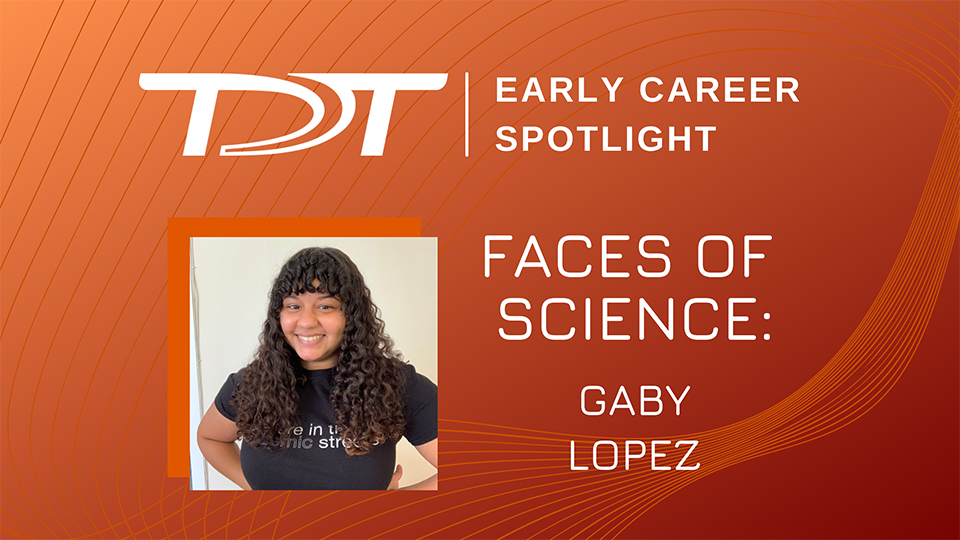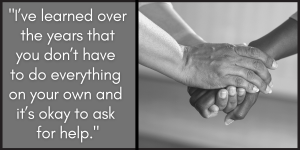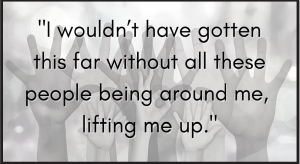Faces of Science: Gaby Lopez
March 16, 2021Early Career Spotlight: Faces of Science highlights early career neuroscientists, particularly BIPOC and women researchers. We hope to amplify underrepresented voices in science and further connect the Tucker-Davis Technologies research community.

|
Gabriela (Gaby) Lopez is a behavioral neuroscientist and PhD candidate in the Lerner Lab at Northwestern University, studying how pain influences drug addiction. You can find her on Twitter: @GLopez_924. Gaby is originally from The Bronx, where she attended public school. She received her Bachelor’s in Behavioral Neuroscience (pre-med) from Connecticut College, and after graduation she worked as a research tech for two years. Gaby is now pursuing her PhD in Neuroscience at Northwestern University, where she has already received her Master’s. Here, she talks with TDT about her neuroscience journey, “taking a break” from academia, and how she likes to relax (spoiler alert: dancing and crocheting are involved). |
Q&A
What is your main research focus?
Our lab studies neural circuits, particularly motivation, reward learning, and habit formation. I’m investigating how pain modulates the reward circuits in the brain – for example, how does dopamine modulation make you more susceptible to developing addiction? For my research, just think pain and drugs!
What TDT system are you using?
Right now, I live and breathe fiber photometry! I’m currently doing two-color fluorophore recordings: dLight (green) and RCaMP (red). I love watching neural responses while the animal is behaving.
When and how did you become interested in neuroscience?
I was interested in science from an early age (particularly mental health), but growing up, resources and exposure to research were scarce. I figured I had to become a medical doctor to do biological research (the only scientists I saw were chemists and physicists).
Undergrad was the first time I was exposed to academic research. I was originally pre-med because of my interest in mental health. To gain necessary research experience, I became involved in a behavioral research lab working with rats. We were studying the neural impacts of food deserts on low-income communities (i.e. obesity, low nutrition) using animal models. As my project evolved, I thought, this is really cool! I can work with animal models, learn about mental health, and this doesn’t require an MD!
If you could go back in time, what advice would you give yourself? And what advice do you have for incoming researchers?
Don’t be afraid to hit the pause button! When I graduated undergrad, I was at a crossroads: Should I do med school or grad school or something else?
I took a break for two years and worked as a research tech in a kidney development lab. I was working full-time, and I got to see if the research lifestyle was a good fit for me. I was also able to informally interview med students (so I could still explore the med school track).
Two things happened during that time:
- I reinforced that neuroscience is my passion!
- Research is what I want to do!
In conclusion, it never hurts to ask, “Is this what I want to do?” And don’t be afraid to take a break from school. Worst case scenario, you get work experience.
Another piece of advice I would give is know when to ask for help (I’m still working on this). As a child of immigrants, I’m used to having to figure out a lot of things myself. But I’ve learned over the years that you don’t have to do everything on your own and it’s okay to ask for help.

Did you have any mentors and/or role models along the way? And if so, how have they influenced you?
- In high school, I participated in a college readiness program that focused on helping people of Latinx origins. My mentors from that program are a big reason why I attended a private school outside of New York City. This program really expanded my horizons and showed me what’s out there! Without this program, I wouldn’t have had the resources or exposure. I am still in contact with my mentors today.
- My PI from my undergrad research lab is such an inspiration. He places a strong emphasis on teaching and mentorship. Working with him made me realize that this is the career I want!
- When I was a technician, I interacted with a high-ranking researcher in my lab. Science is predominantly white and male, and he was my first mentor of color. This was the first time I could properly connect with someone who understood my obstacles in science. I learned how he got his PhD and prevailed against those obstacles. I thought, if he can make it, why can’t I?
- In grad school, there a lot of inspirational people around me. My PI for one – she’s superhuman. She’s so smart, so helpful, and she really cares! If I were to be a PI, I would want to be like her. And there are also my lab mates. I see their goals and it really motivates me!
What challenges have you encountered? And how have you overcome these obstacles?
The last few years have been tough. There have been family issues, and I had to switch labs (my previous PI moved). My new PI really fought for me! I wouldn’t have gotten this far without all these people being around me, lifting me up.

How do you keep yourself balanced (or attempt to keep yourself balanced)?
I like to exercise to keep myself balanced, especially while being at home (I quarantined from March to June). I’m currently doing online workouts, especially for dance. I know I need to move, so why not do exercise in a fun way? I really miss going out dancing, and I can’t wait to go out when the pandemic is over!
I also crochet. I started in grad school and it’s good, mindless stress relief. Crocheting keeps my hands busy, which helps me a lot. Recently, I made a baby blanket for my advisor, who just had a baby.
What do you like to do for fun?
I like to make food and post pictures on social media. I grew up surrounded by cooking, but not actually doing it. Now, I’m experimenting in the kitchen by exploring online recipes and adding my own cultural twists. Cooking is like a science project; you follow the recipe (protocol) and at the end, you ask “Did it work?”
During normal times, I’m very social. Right now, I try to keep in contact with family and friends as much as possible (phone, FaceTime, Zoom, etc). During the shutdown, my friends and I worked out together over Zoom, and it was good motivation.
What are you most looking forward to once the pandemic is under control?
Hugging people!
[ back to top ]
Tags: fiber photometry, early career spotlight
